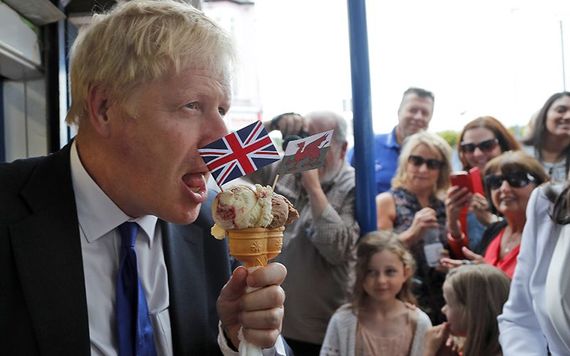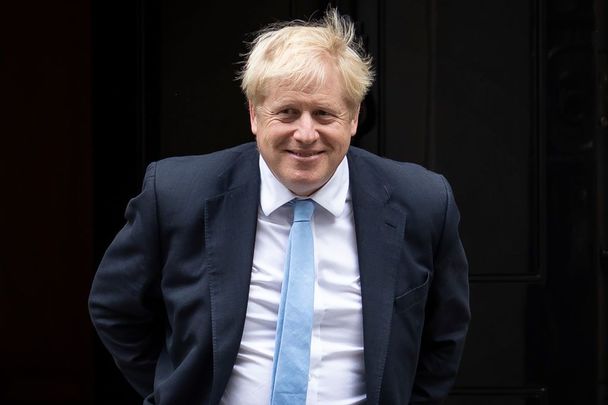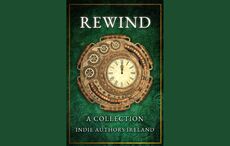Brexit may be a nightmare for politicians, but it's no fun either for newspaper columnists like yours truly stuck in what feels like an endless Brexit Groundhog Day.
At the time of writing Brexit is still not settled despite the U.K. and the EU reaching a proposed agreement, one in which the Taoiseach Leo Varadkar played an important role.
The problem is it has to be passed by the British Parliament before it can go any further, and when Prime Minister Boris Johnson tried to get it through Westminster last Saturday he was stymied by amending legislation. He is due to try again this week and, who knows, by the time you read this he may have succeeded.
Or not, if Brexit Groundhog Day dawns again. Whatever happens, he is still vowing to get the U.K. out of the EU before the end of the month.

Prime Minister Boris Johnson.
Despite the difficulties he faces, the betting this week is that he will manage a very narrow victory in the end, not least because so many politicians and their voters are fed up with the quagmire Brexit has become. It will probably take a few weeks to get there which means he will have to accept an extension of EU membership beyond the set departure date of October 31. He said he would rather die in a ditch than do this, but there is no alternative.
It is possible, of course, that Parliament will continue to frustrate Johnson and Brexit will be overtaken by a general election. After that, if he fails to get a majority it could drag on so long that eventually it will be abandoned.
Or it could be watered down so much it becomes BRINO (Brexit In Name Only). And on top of all this, the Labour Party is now backing calls for a second referendum which could reverse the 2016 Brexit decision altogether.
But the current betting is that Johnson will prevail in the coming weeks and Britain will leave. This means that we need to start looking very carefully at the detail of the exit deal he agreed with the EU after the critical meeting with Varadkar that enabled the breakthrough.
With good reason, it was hailed as a great victory for Ireland since it accepts what we always wanted -- no border here. Instead, the deal throws the unionists under the bus because to avoid a land border in Ireland there has to be a border down the Irish Sea, which will make Northern Ireland different economically from the rest of the U.K.
The North effectively will stay in the Single Market, observing all EU standards and rules. And although it will legally remain in the U.K. customs entity, it will effectively also be part of the EU Customs Union through a complicated new structure. The result of both these measures is that all of the island of Ireland can be treated as part of the EU and therefore there will be no need for a land border between north and south.
There was a great deal of satisfaction here at this outcome and Varadkar got a substantial bounce in the polls last week as a result. That is no surprise since there had been a growing fear here that the Brexit nightmare was heading towards an inevitable hard border.
But although we have got the main thing we wanted -- no border in Ireland -- this deal will still pose significant problems for us in the future, much more so than the softer Brexit deal that former Prime Minister Theresa May had been pursuing.

Former British Prime Minister Theresa May.
That is because the kind of Brexit that Johnson wants to achieve is a hard one, with wide divergence between the U.K. and the EU. He has made it clear that he does not want the U.K. to mirror the onerous Single Market standards and rules that apply across the EU.
He also says he wants to be free to do trade deals around the world while also having a free trade deal with the EU. Both raise serious questions for Ireland.
One economist here last weekend wondered how the new deal will handle something like American beef, which is much cheaper than beef produced in Europe. If Johnson does a free trade deal with the U.S. after Brexit, the U.K. will be free to import as much American beef as it wants, and it's fair to assume that some of this will arrive in Northern Ireland.
Under the complicated new customs arrangement, goods arriving in the North from the U.K. will be charged EU tariffs, but these will be refunded if the goods stay in the North. So under this system, American beef arriving in the North would pay EU tariffs, but this would be reclaimed by butcher shops and supermarkets in the North when the meat is sold there. If the meat is moved on into the south, then no refunds would be paid.
The deal only sets out the principle of this, and the detail of how it will work in practice is to be sorted out and implemented by a joint committee of UK and EU officials. All I can say is rather them than me! It will be horrendously complicated and will involve an extraordinary amount of form filling either on paper or online by people on the ground trying to work the system.
That's the customs tariffs. Then there's the standards and rules issue to cope with.
In this example of American beef, we know that very different regimes apply on the two sides of the Atlantic in relation to hormone use, antibiotic use and more. How will this be monitored to ensure beef arriving in the North meets EU standards?
If this sounds like a recipe for chaos, it gets even worse when one adds in the difficulty for us in the south trying to control the beef market without a border.
here will be nothing to stop shoppers from the south traveling north and buying lots of cheap American beef to fill their freezers at home. Smaller retail outlets in the south may be tempted to cash in as well. And of course, there will be a huge incentive for smugglers to join the party.
American beef is just one example. Drugs, electrical goods, clothes, and many other consumer areas would also pose problems due to cheaper alternatives with different standards available on global markets. Keeping control of standards in the North and preventing seepage into the south of goods that have avoided tariffs will be difficult.
There is a further reason why all this poses problems for the south. If we fail to keep on top of the situation and a high level of seepage and smuggling occurs, we run the risk of having all Irish exports arriving at EU ports being treated with suspicion.
Are they really Irish? Or does this frozen Irish stew made in Ireland actually contain a large amount of cheap American beef on which no tariffs were paid?
May's softer Brexit proposed keeping the U.K. closely aligned to EU rules and standards, thereby making a future trade deal with the EU easier to accomplish. Johnson's deal is different, envisioning a much looser regime which will allow lower-cost imports from around the world.
Inevitably this will make striking a trade deal between the U.K. and the EU after Brexit much harder in many sectors and might take many years to negotiate.
Without such a deal, Ireland will suffer badly, possibly as much as in a hard Brexit crash out. We have risked a great deal in supporting the Johnson Brexit plan so that we can avoid a border of any kind here.
Yes, it means that north-south trade will continue unimpeded, but that is a small fraction of our east-west trade with Britain. That is far more important and it will be much harder to maintain at present levels under the Johnson Brexit plan.
On top of all this is the part of the plan that was supposed to keep everyone in the North happy, the proposal that the Northern Assembly (regional parliament) would have a vote every four years on whether to stick with the plan or fully join the new U.K. regime. That failed to keep the Democratic Unionist Party (DUP) on the side, since they could not be certain they would have a majority in the future.
It also raises the possibility of a hard border here in the future if the majority in the North ever decide to be part of the U.K. customs and standards entity alone. And it poses real difficulties for businesses north and south as well as multi-nationals who might be reluctant to invest given the uncertainty about the future.
Overall, it's understandable that we celebrated the EU acceptance of the Johnson Brexit plan here since it avoids the return of a border. But there is no such thing as a good Brexit.
Brexit of any kind is not good for the U.K., for Europe and certainly not for Ireland. And that applies just as much to Johnson's version of it.




Comments